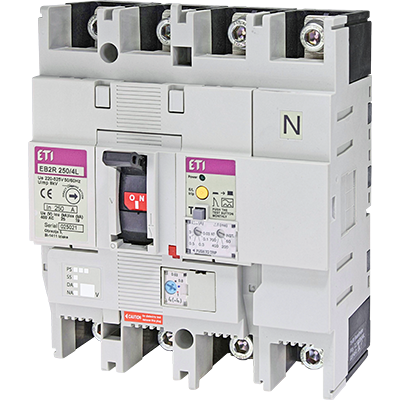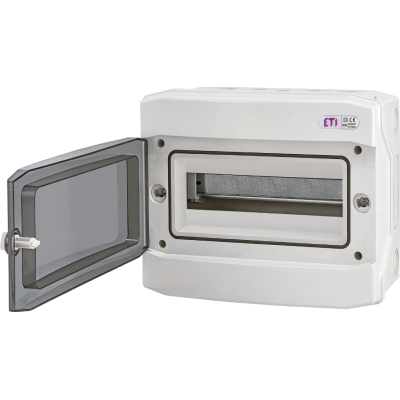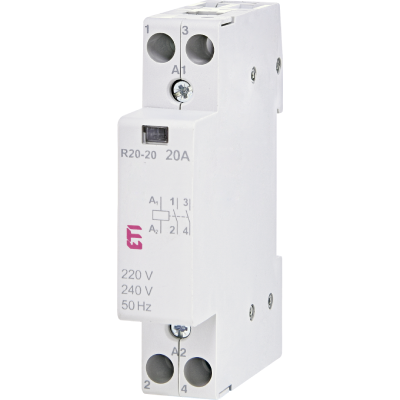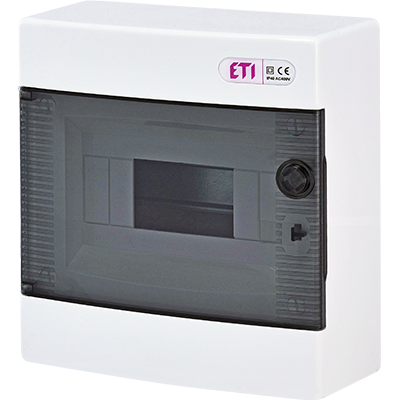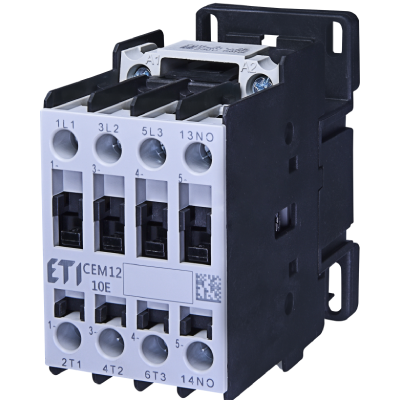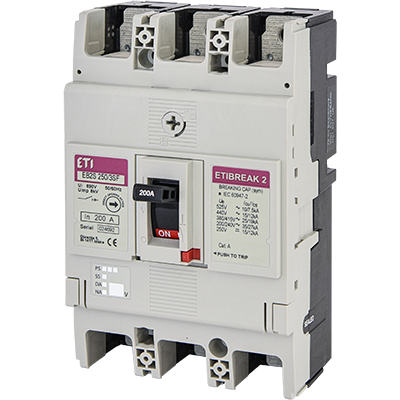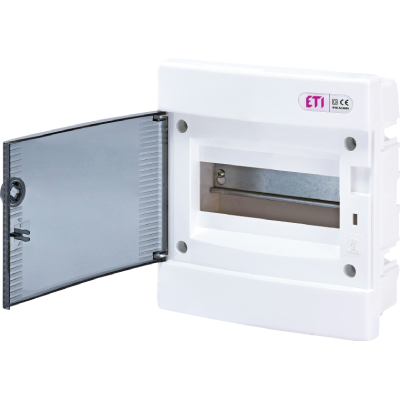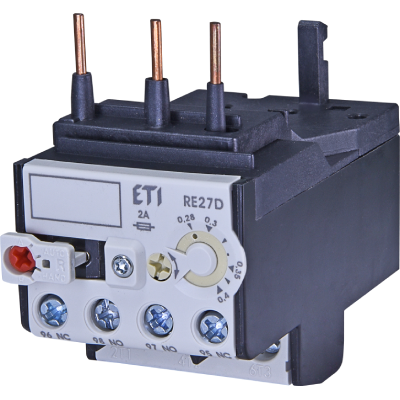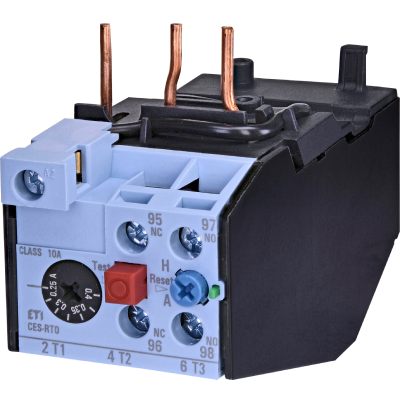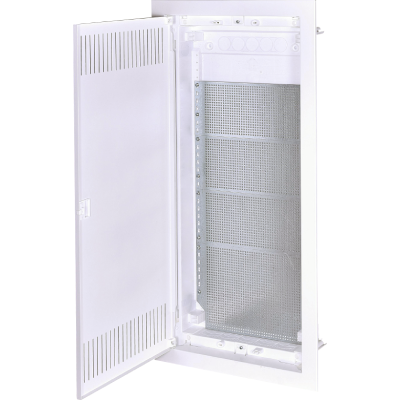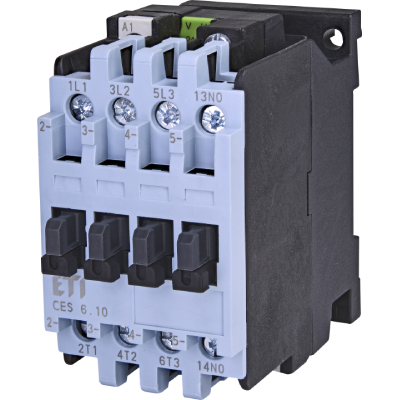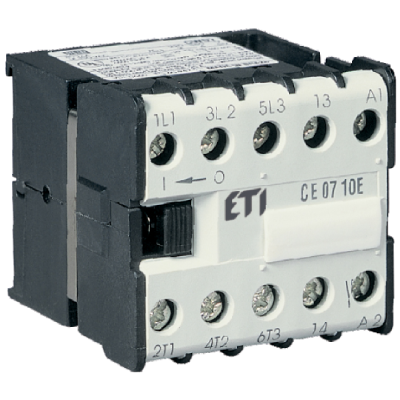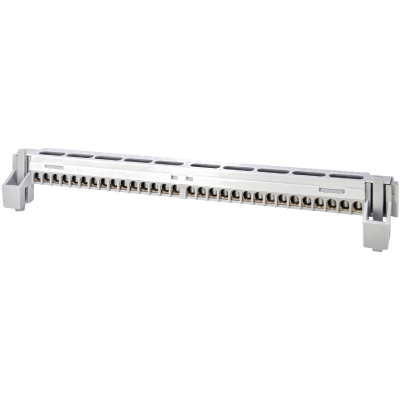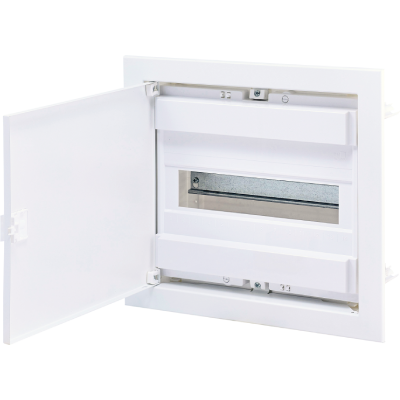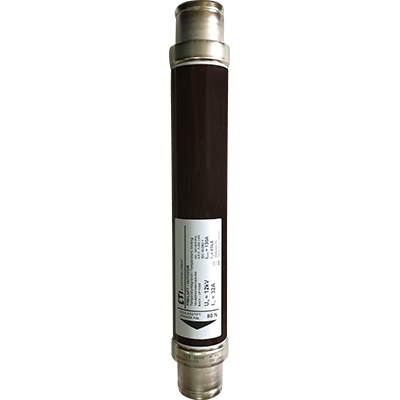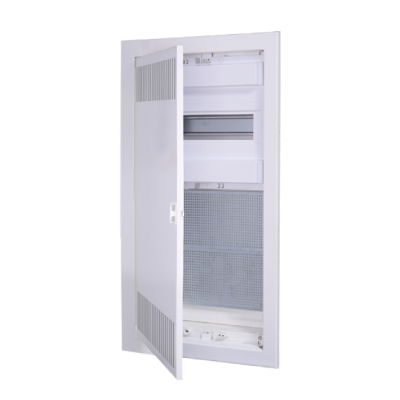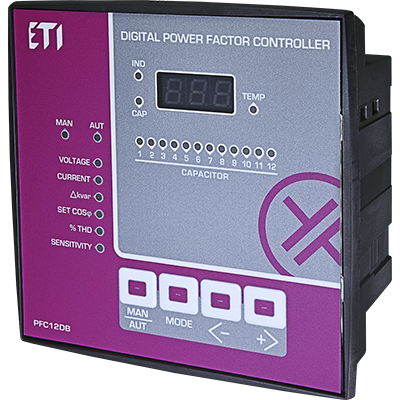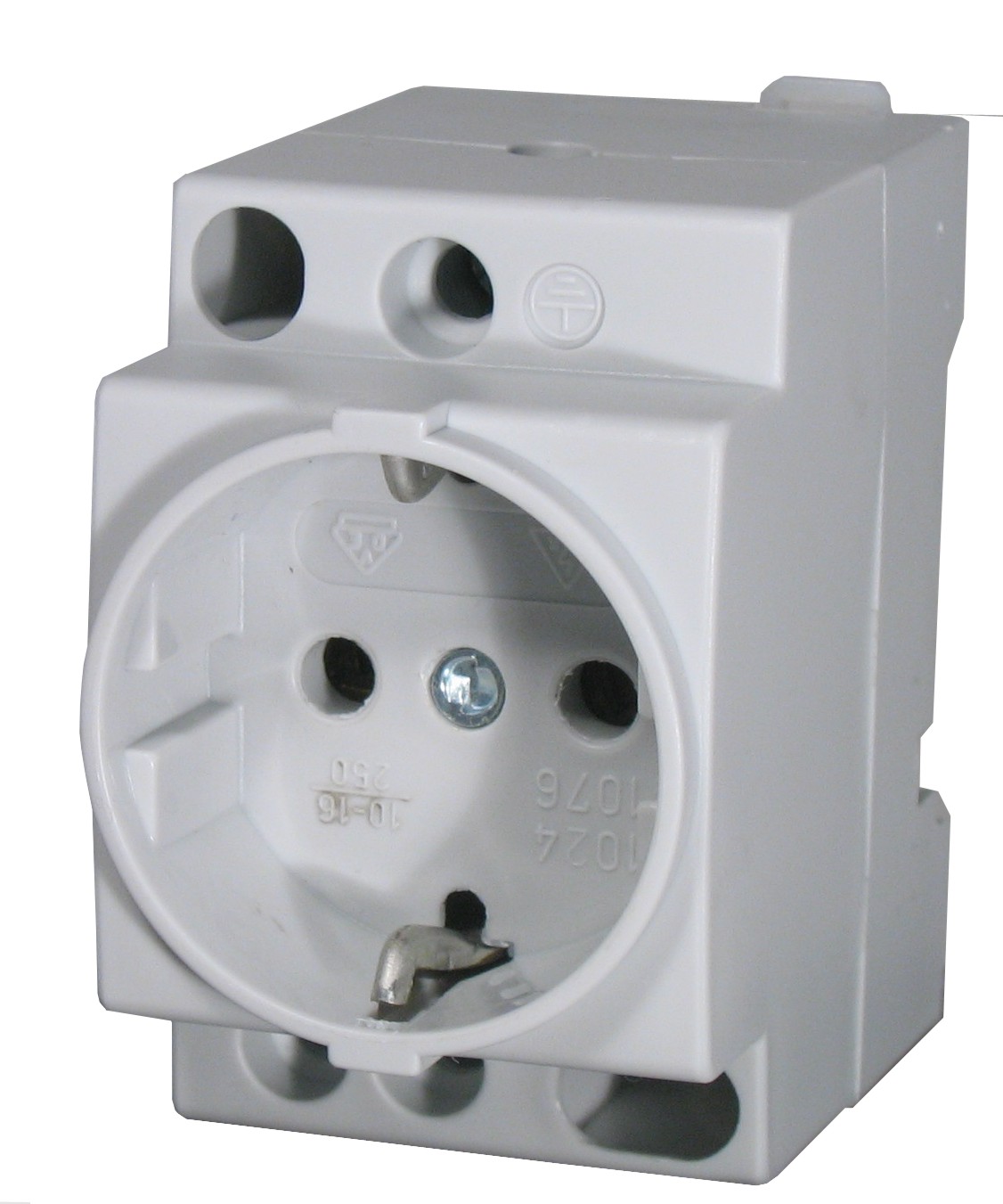FI relay process industrialization
As part of the renovation of the Residual Current Circuit Breakers (RCCBs) production, the opportunity arose to also redesign the FI relay process. FI relay is one of the key components used in residual current circuit breakers and ours has a unique design, structurally adapted to automatic assembly. Thus, we are now the first company with a fully automated FI relay manufacturing processes, leading to higher quality of the final product. With design adaptation, full traceability of assembly, control and thus also the final product, we ensure a longer service life and stability of the relay above any other on the market.
Andraž Pušnik |

1. Problem and it's solution
The innovation of the FI relay process update was based on outdated technology that has been present in ETI for many years. There have always been many ideas for improvements, which we could not implement due to the obsolescence of the process. All assembly took place by hand, so it was extremely difficult to keep the quality of the products at the level and achieve sufficient manufactured quantities due to the small size of the products, which are more difficult to manipulate by hand.
With the innovation of the FI relay process, we strived to implement all the proposals collected so far for possible improvements and complete process automation. Because the process is quite complex, consisting of different technologies, we were able to automate part of the process and part of it is semi-automated. In order for the process to be automated, we also had to perform a partial design change on the FI relay.
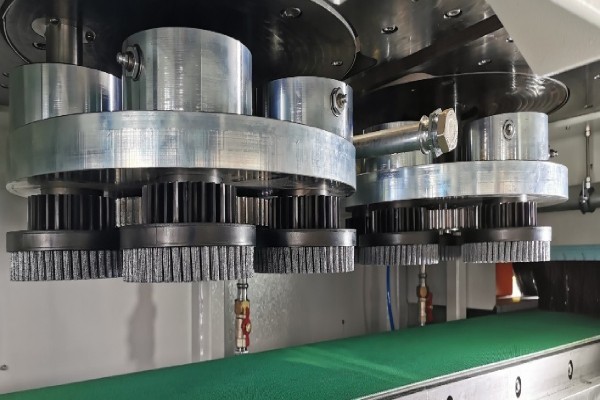
By implementing automatic assembly with the help of actuator grips and robots, we can ensure a more stable, and therefore better quality process due to the extraordinary repeatability of movements. The components of the FI relay are very small, which caused a lot of problems for the workers during the assembly process, as a result of which the assembly process caused an increased amount of ejection. We improved the quality of the product and the stability of the relay parameters.
With the performed design change on the FI relay, we changed the production of the shaft and armature subassembly. In the previous process, the clamping of the armature and shaft was done manually, with the help of a leaf spring. By changing the construction, laser welding of the shaft to the armature is enabled, without the necessary use of a leaf spring, and the production is automatic. Due to the manufactured welds, we achieve a fixed perpendicularity between the shaft and the armature, which means more stable operation and a longer service life for the relay.
All devices that are new in the process allow us to set more and better process parameters, thus significantly contributing to the final quality. The multi-point process involves vision control of the input material or final control of the semi-finished product or product. With this we can define what kind of material enters the process or. in what condition are the components before the product is finally closed. This is also one of the significant improvements that affect the final quality of the product.
2.Dimension of the innovation
Innovation is a novelty both at the level of the organization and in the international market. We have not found similar solutions in the field of automatic assembly and control of assembly processes, as well as the final product in the competition on the global market, as our product has a unique design. With high probability we can say that we are the first in the field of FI relays in part or. fully automate manufacturing processes. We can also say this because we have a modified design compared to the global competition, which is structurally adapted to automatic assembly. With the innovation, in addition to reducing production costs, we also raised the quality of the final product, which is of key importance for customers in the global market. With traceability of assembly, control and thus also the final product, we can always check the origin of components according to the day of manufacture, and use the data for analysis or presentation to customers.
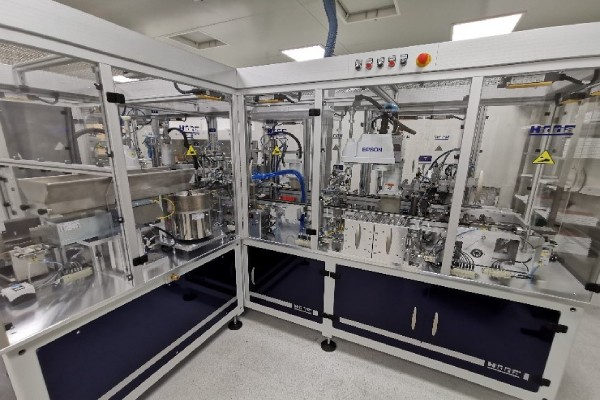
We managed to achieve automation through a design change in the product and at the expense of continuous improvements in the field of process automation elements. The company Hidria, which specializes in the production of devices for complete automation according to the specific requirements of customers, has used the latest possible technological solutions for us in terms of robotic systems, vision systems and the process components themselves. Even for devices and systems from other suppliers, our demand was for above standards.One of the most important elements is the construction of a clean space, which, by ensuring cleanliness according to the ISO 8 classification of the number and size of particles, ensures ultimate safety against the intrusion of foreign bodies during the assembly process. With the introduction of armature shaft welding, we can significantly outperform the competition, as FI relays and consequently the Residual current circuit breakers(RCCB's) and Residual current circuit breakers with integral Overcurrent protection(RCBO's) in which we install them can achieve a significant and above-standard service life.
Our advantage over the competition is that we ensure a longer service life and stability of the relay by welding the shaft to the armature. We also perform the entire composition of the relay in a clean room, which helps to reduce the number of particles inside the relay. We have a more efficient manufacturing process, as we are able to assemble very small components with robotic manipulators, which greatly affects the quality, productivity and price of the product. We also provide numerous video surveillance of components and the final product, which are the result of our own knowledge and testing and are designed specifically for our solutions. Innovation is one of the constant innovations, as we have introduced improvements in the production process with the help of new technologies and development improvements.
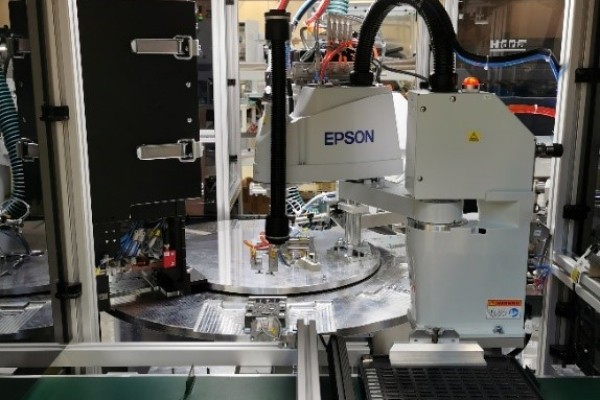
3.Sustainable effects
The innovation significantly raised the technical competence of the company, as in a relatively short time we managed to raise the entire process of manufacturing FI relays to a significantly higher level. Such a successfully completed innovation has a very positive effect on all innovators and other employees of the ETI, as it increases the financial stability of the company and improves the working conditions of employees. Ergonomics placed great emphasis on the safety of workplaces (workers) when planning the assembly process. During operation, workers are prevented from accessing live parts and moving parts. Intervention on the machine may only be carried out by authorized workers with a service key that stops the machine before opening the door. Restarting, however, is possible when the door is closed and locked. The project team received an internal award for the industrialization of the process in the company for a very successfully implemented project.
The assembly line is designed so that it does not pollute the environment. At all workplaces where contamination is potentially possible, air extraction and filtration are regulated before discharge into the central suction system. In the design, the emphasis was on the noise level so that it does not exceed 78 dB (measured 1 m from any point around the devices). All workplaces are ergonomically designed and adequately lit. With the new process, we reduced the produced technological water by 90%, in the amount of 3,000 liters of technological water per month. Almost all the water used can now be sent to a treatment plant where it is completely purified. We also eliminated the use of low-melting metal, which contained elements that are environmentally controversial and also dangerous to workers in the long run. Due to the cessation of the use of low-melting metal, we no longer need additional water heating, which has reduced our electricity consumption by about 12.8 MWh per month. We also invented an innovative solution for space heating. Through the electrical consumption of the robots on the automatic assembly line, we suck warm air into the air conditioner, which returns it to a clean room at a pre-set temperature at a flow rate of 4000 m ^ 3 / h. with a constant temperature. In this way, we almost do not need to use a 16 kW heater in the air conditioner, which would operate at a quarter power, which saves us 35 MWh of electricity annually.
.jpg)
With the introduction of an automated assembly process, process traceability and the quality of the final product, we directly raised the quality. By reducing the possibility of errors and complaints, we increase employee satisfaction and customer satisfaction. With the innovation, we were able to successfully compete with the biggest competitors in the market.



